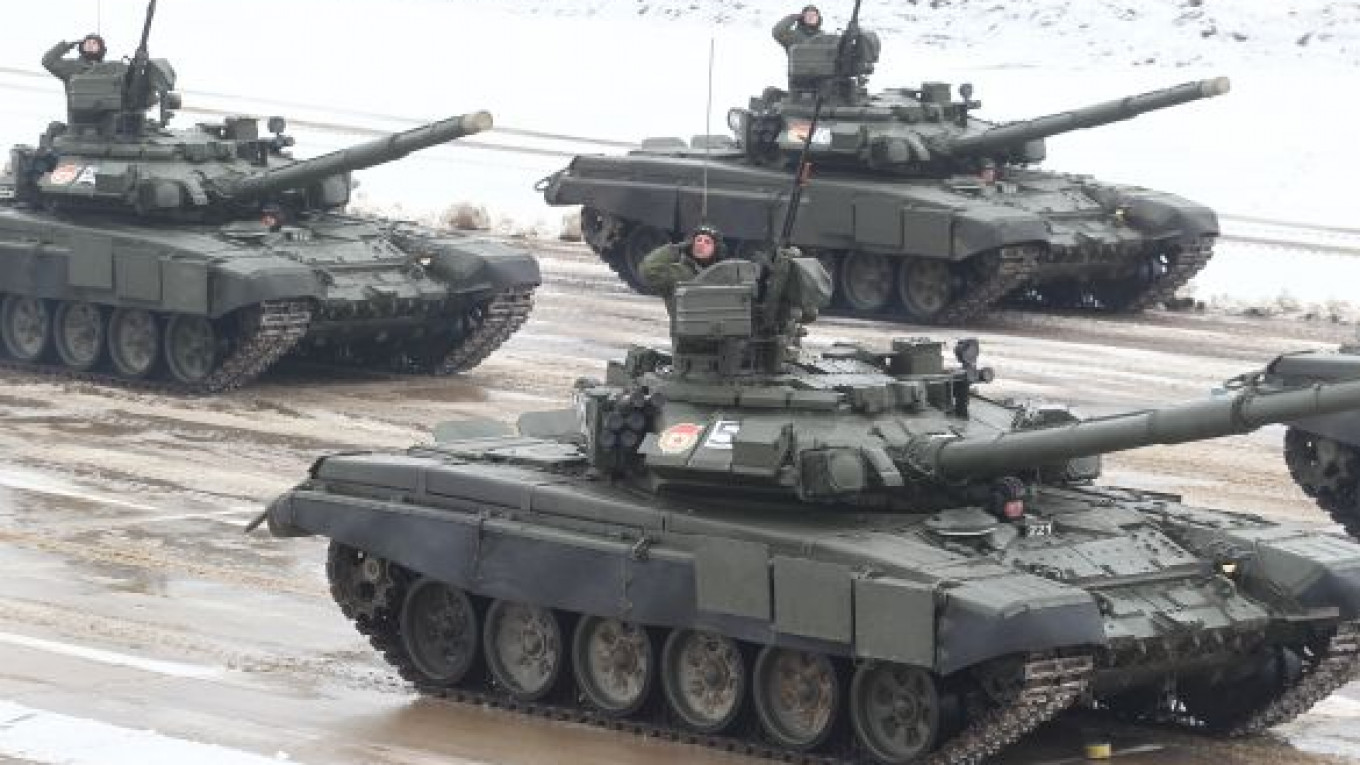A number of defense suppliers failed to deliver weapons worth a total of about 14.5 billion rubles ($474 million) to the country’s armed forces this year, a Defense Ministry official said Wednesday.
Those on the blacklist include Oboronservis — a company mired in a major corruption scandal involving former Defense Minister Anatoly Serdyukov — and some of its subsidiaries, Deputy Defense Minister Yury Borisov told journalists.
Although most manufacturers met the deadlines to supply weapons to the government in 2012, some still lag behind, including shipbuilders and
armored-vehicle makers, he said.
As part of the government’s ambitious program to equip armed forces with state-of-the-art weapons by 2020, 1.3 trillion rubles was set aside in the federal budget to buy arms next year, Borisov said. The figure exceeds this year’s spending by more than 40 percent.
Among the defense contractors that failed to meet the delivery deadline this year are aircraft maker Tupolev, the Amur Shipbuilding Plant, the Yantar Shipbuilding Plant and Sevmash, Russia’s only producer of nuclear submarines for the Navy, Borisov said.
The ministry plans to sign defense contracts for the 2013-2015 period by mid-April, Borisov said.
Among the new items that the army will get over the next few years is a modern tank called Armata. The Defense Ministry plans to begin purchases of the tanks in 2014, with the first supply to include 16 of them, Borisov said.
Tank manufacturer Uralvagonzavod will supply 2,300 such vehicles to the army by 2020, the plant’s chief executive, Oleg Sayenko, said earlier this year.
Borisov said the government also plans to buy locally made unmanned-aircraft systems between 2013 and 2015, as domestic manufacturers have improved the quality of their products and demonstrate good potential to compete with global industry leaders.
The government started buying drones in Israel in 2009 after local manufacturers failed to provide high-quality equivalents.
Purchasing equipment from abroad and localizing production of similar models transformed the domestic arms industry, Borisov said.
“Companies revised their plans and ramped up their activities,” which resulted in many domestic manufacturers being able to make aircraft systems of the same high quality as those produced by Israel’s Israel Aerospace Industries, the world’s leader, he said.
The government has been pushing to reduce imports of weapons to stimulate local arms manufacturing.
A group of defense experts chaired by Deputy Prime Minister Dmitry Rogozin issued a report earlier this month advising the government to cancel or revise disadvantageous contracts with foreign suppliers. The Defense Ministry lacks a systematic approach and a proper reasoning for arms imports, the report said.
The country’s defense spending between 2011 and 2020 will exceed 20 trillion rubles.
Related articles:
A Message from The Moscow Times:
Dear readers,
We are facing unprecedented challenges. Russia's Prosecutor General's Office has designated The Moscow Times as an "undesirable" organization, criminalizing our work and putting our staff at risk of prosecution. This follows our earlier unjust labeling as a "foreign agent."
These actions are direct attempts to silence independent journalism in Russia. The authorities claim our work "discredits the decisions of the Russian leadership." We see things differently: we strive to provide accurate, unbiased reporting on Russia.
We, the journalists of The Moscow Times, refuse to be silenced. But to continue our work, we need your help.
Your support, no matter how small, makes a world of difference. If you can, please support us monthly starting from just $2. It's quick to set up, and every contribution makes a significant impact.
By supporting The Moscow Times, you're defending open, independent journalism in the face of repression. Thank you for standing with us.
Remind me later.






